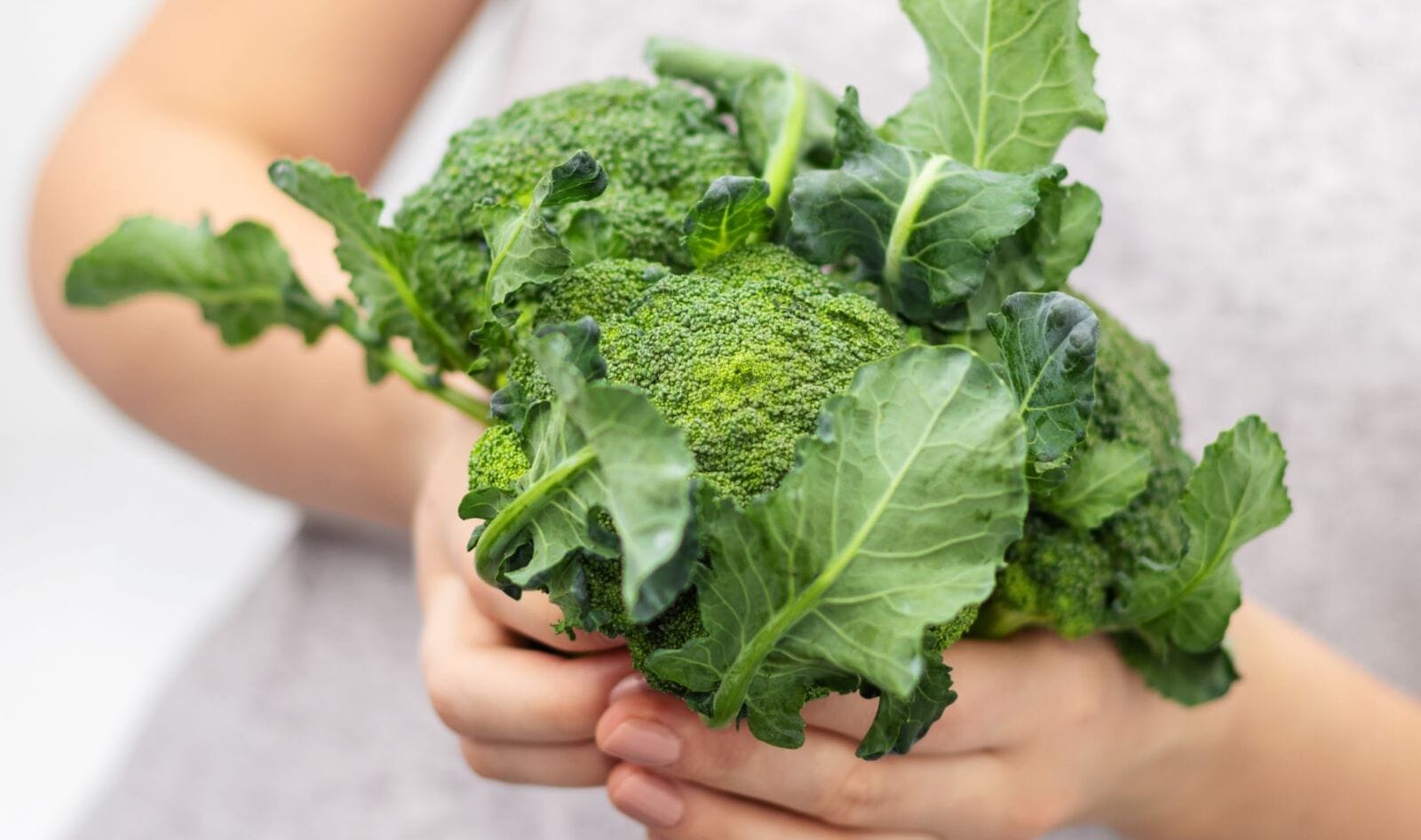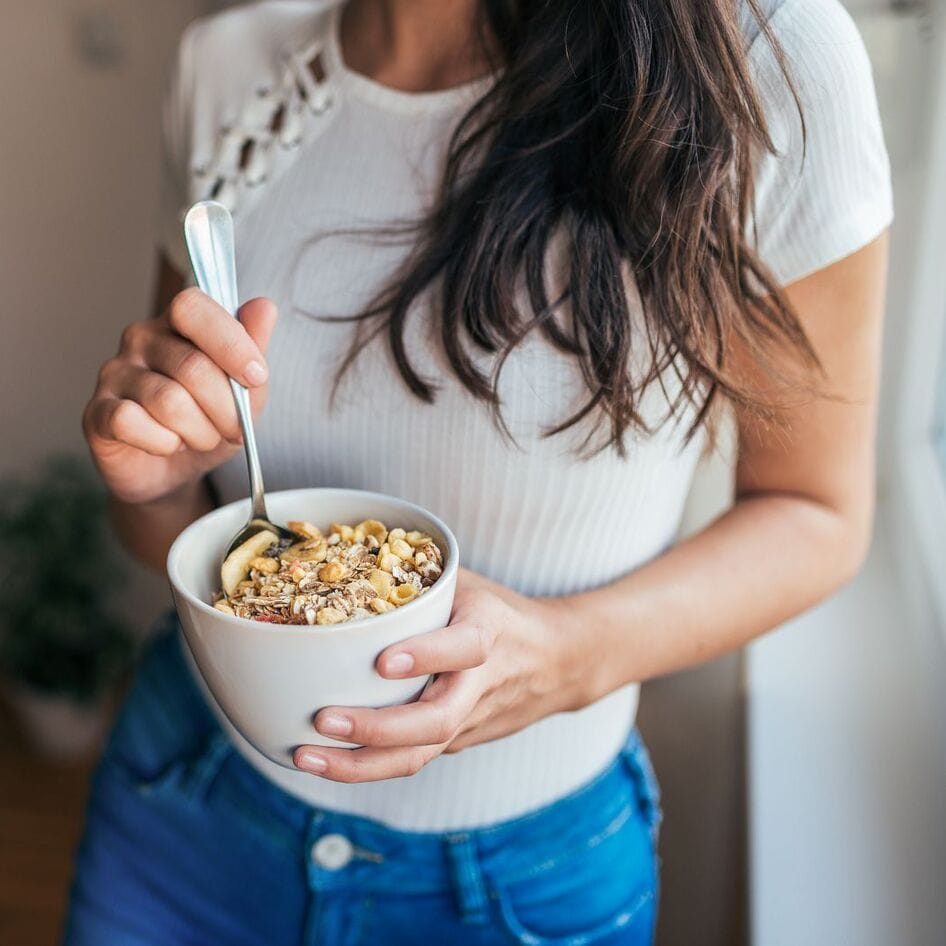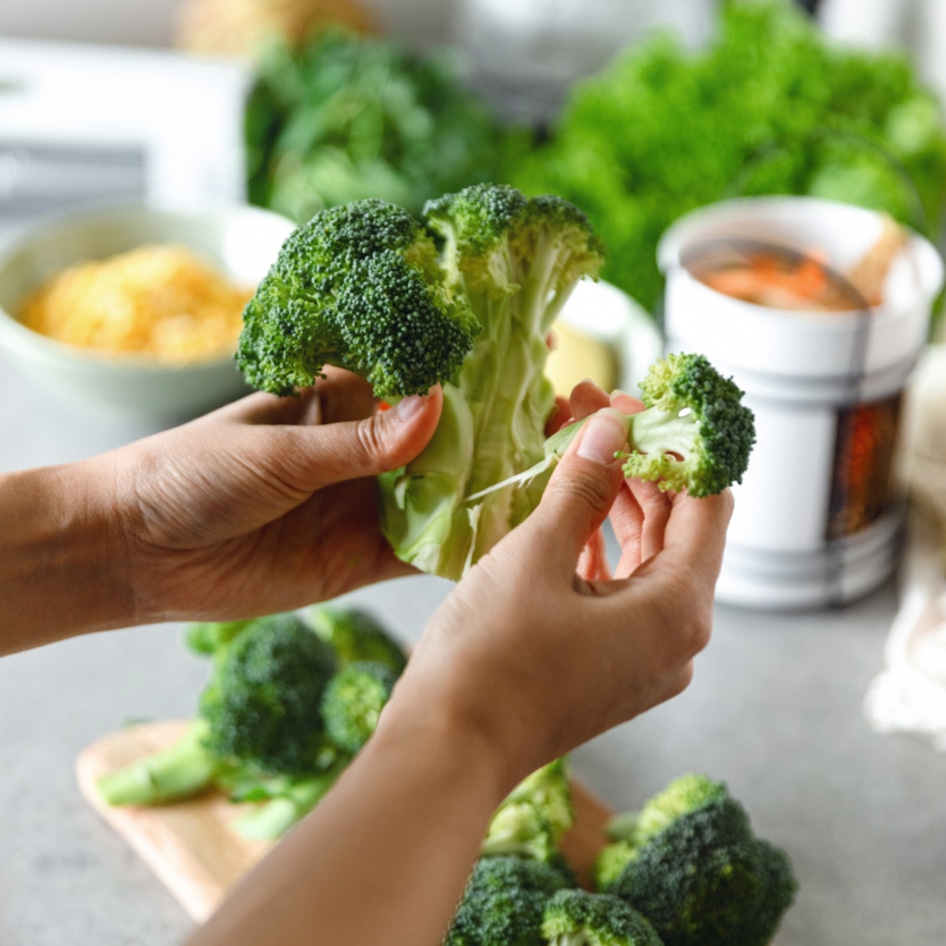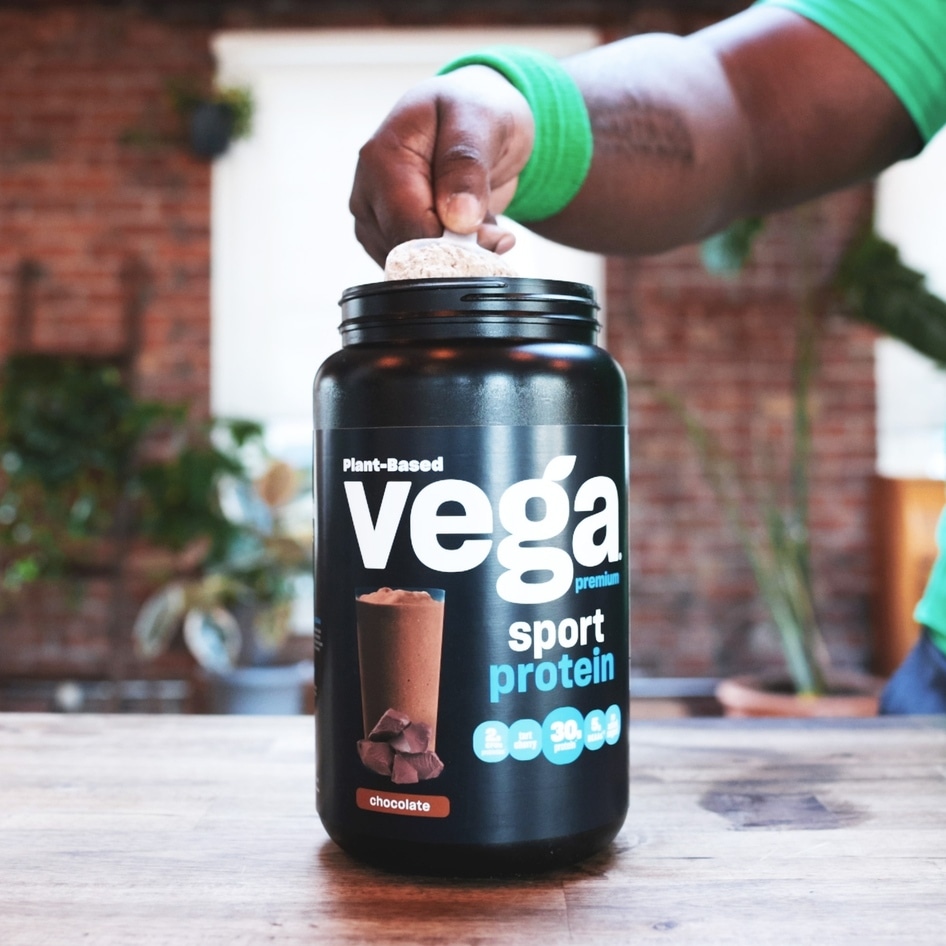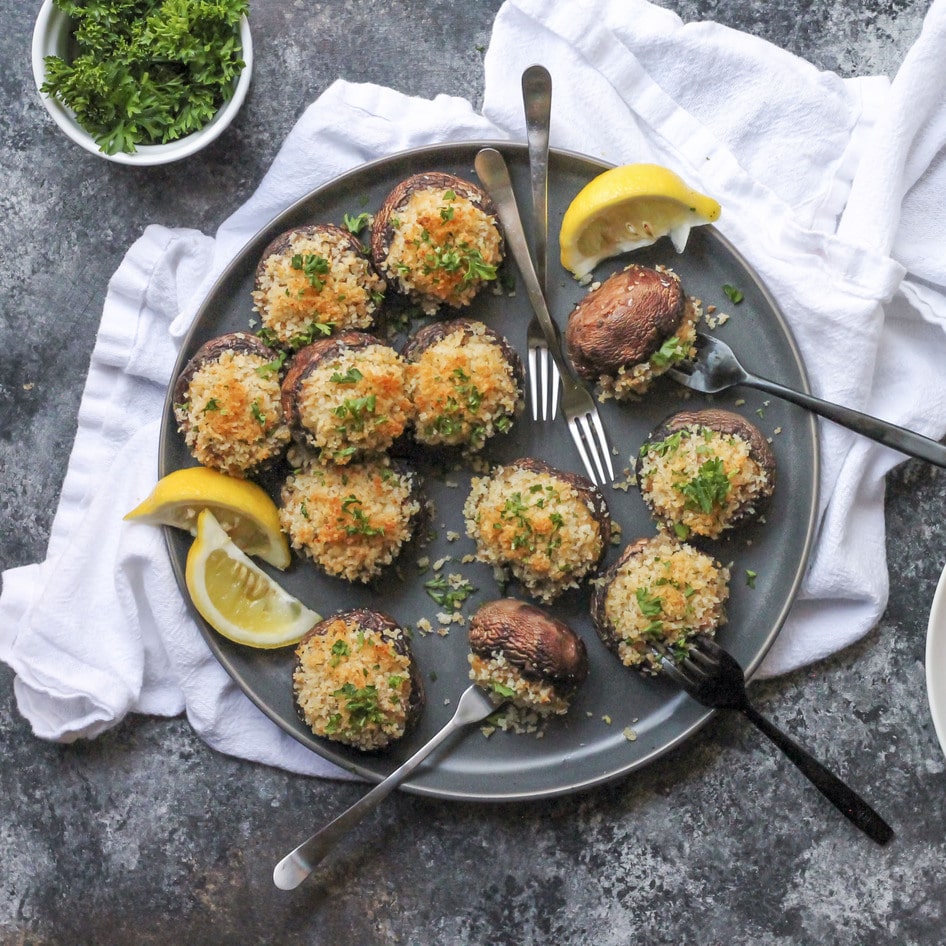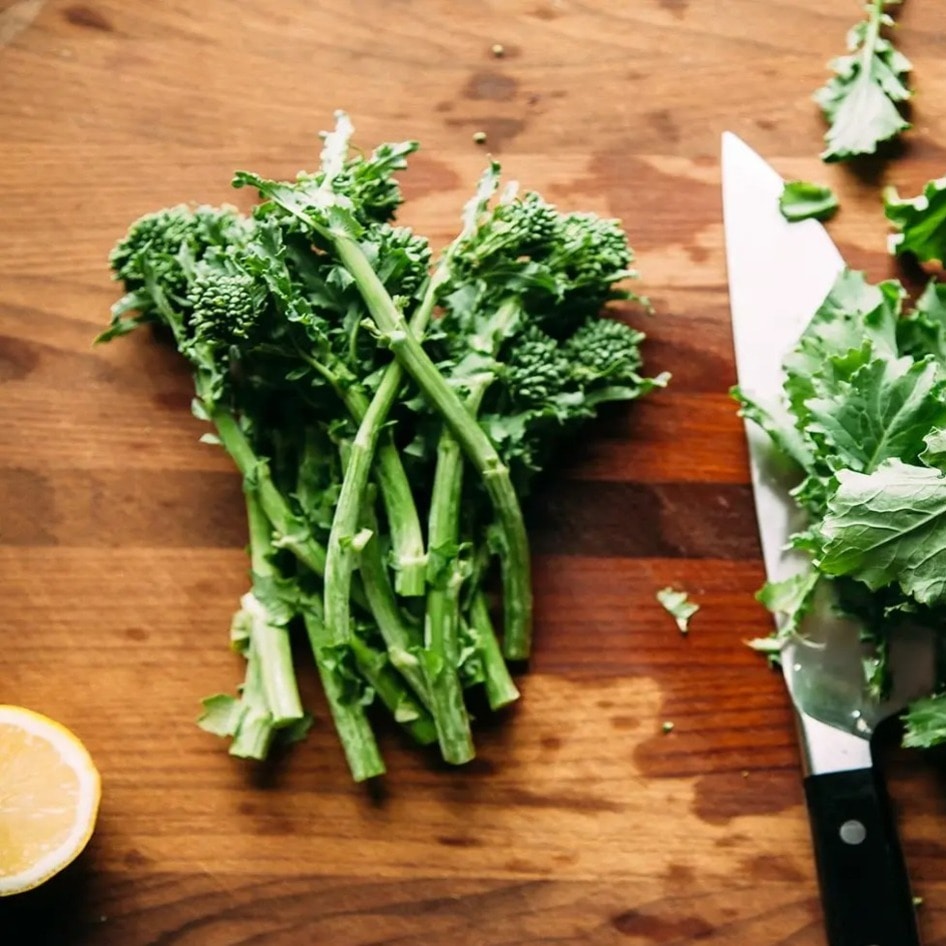Picture a world where surplus broccoli, typically destined for the landfill due to imperfections or overproduction, is transformed into a versatile and nutrient-dense protein source. This is precisely the vision that researchers and food technologists are turning into reality, aligning with the broader sustainability goals and addressing the pressing challenge of reducing food waste.
The journey of this broccoli-based protein began with a collaboration of scientists and food industry experts determined to harness the full nutritional potential of this unassuming cruciferous vegetable. Broccoli has long been celebrated for its rich content of vitamins, minerals, and dietary fiber, and now, it’s taking center stage as a vital protein source.
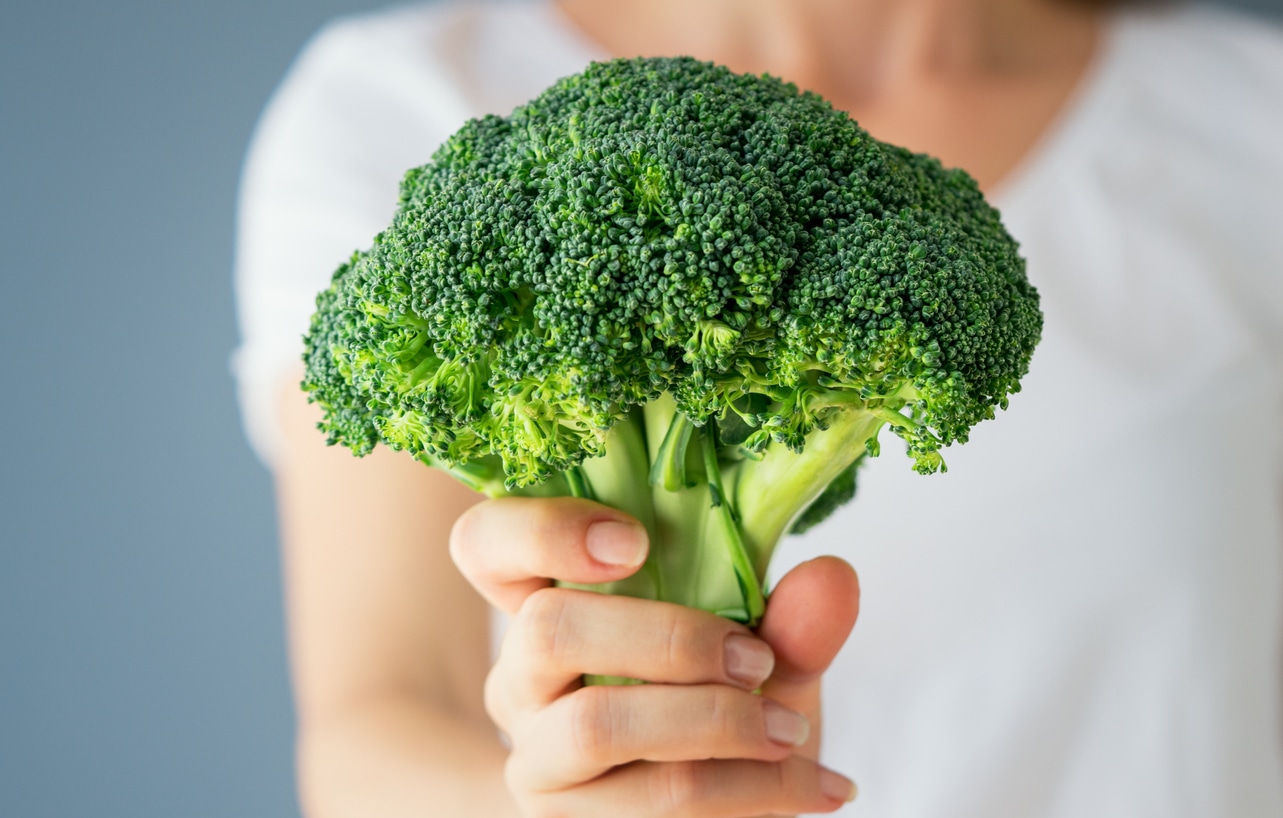 Getty
Getty
In broccoli harvesting, as much as 80 percent of the plant, such as the stems, stalks, and leaves, is wasted and left in the field once the heads are removed for sale. But according to Upcycled Plant Power (UPP), a company developing an AI-powered harvesting technology in the United Kingdom, this “waste” is just as nutritious as the broccoli heads you find in the supermarket.
Making vegan protein from broccoli waste
UPP’s process is made up of two distinct parts, harvesting and plant-based protein production, where it takes broccoli that would otherwise go to waste and transforms it into a protein-rich powerhouse.
Notably, preliminary tests have yielded promising results, revealing a robust amino acid profile that rivals traditional protein sources such as soy and pea. This development opens exciting possibilities for consumers seeking plant-based proteins while maintaining their nutritional needs
Traditionally, broccoli harvesting involves manually cutting broccoli heads by hand with a knife, leaving behind the stalk, leaves, and heads that don’t meet supermarket requirements.
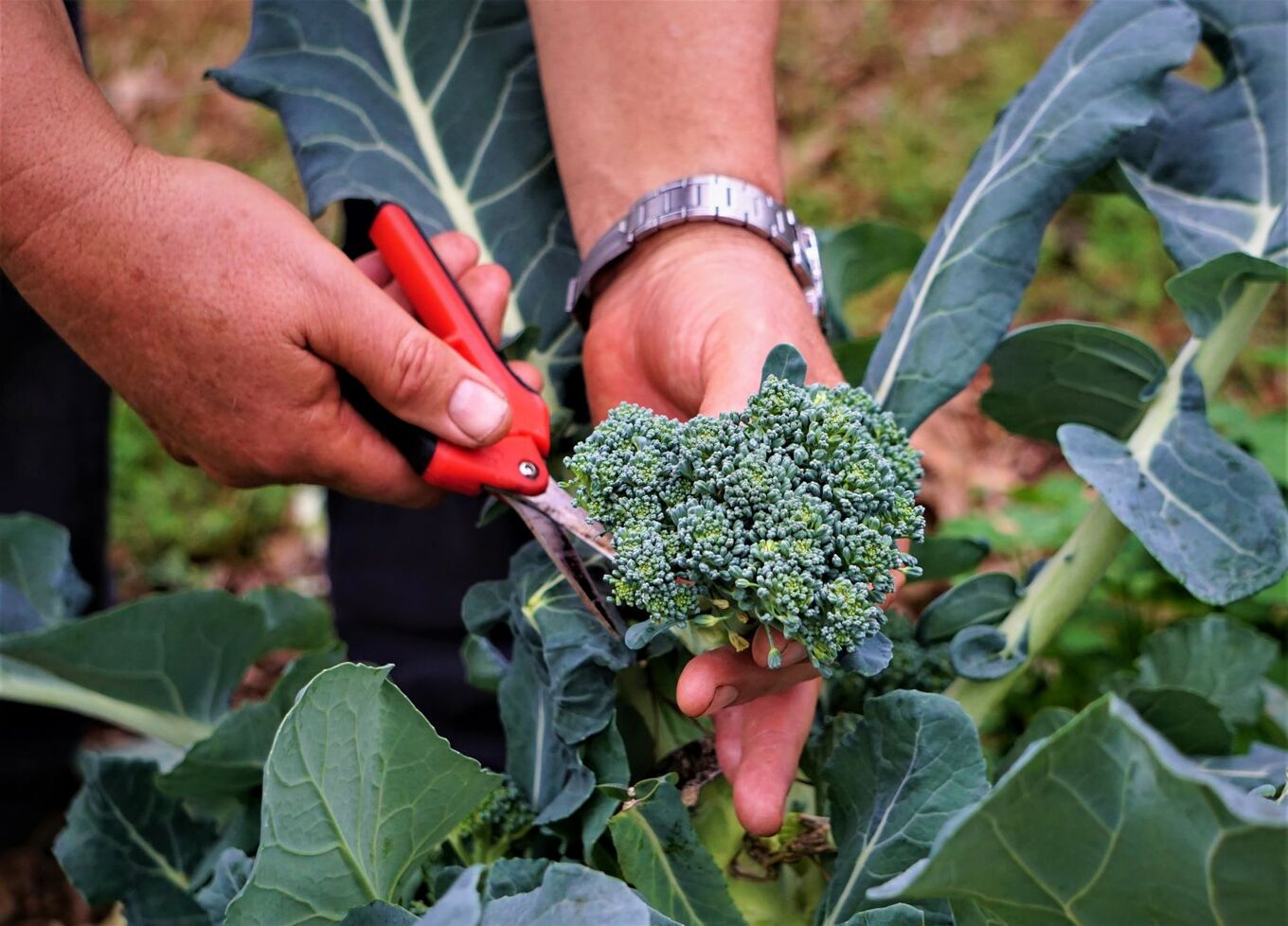 Adobe
Adobe
But UPP’s new harvesting tool makes the process much more efficient by using machine learning to identify broccoli heads that are ready for harvesting. It then cuts and lifts the whole plant onto a trailer where the heads are separated from the rest of the plant.
Next, on-farm upcycling units enable UPP to extract proteins, fibers, and sugars from the broccoli stems, stalks, and leaves, so the plant that would otherwise be wasted can be used for human food applications.
“UPP’s smart machinery enables broccoli farmers to harvest more of the plant than they feasibly could using traditional human labor because the AI-plus-tractor-tool combo does it all: spotting, cutting, lifting, and carrying at a rate of up to 3 km/h, harvesting the whole broccoli plant,” David Whitewood, UPP CEO and founder, told FoodNavigator.
The process of extracting is simple: UPP squashes the biomass to get a protein-rich juice and a pressed fibrous cake, which is approximately 45 percent fiber that contains proteins and sugars. After fermenting it with cultures to preserve it, the mass can be used in products such as vegan meats and baked goods.
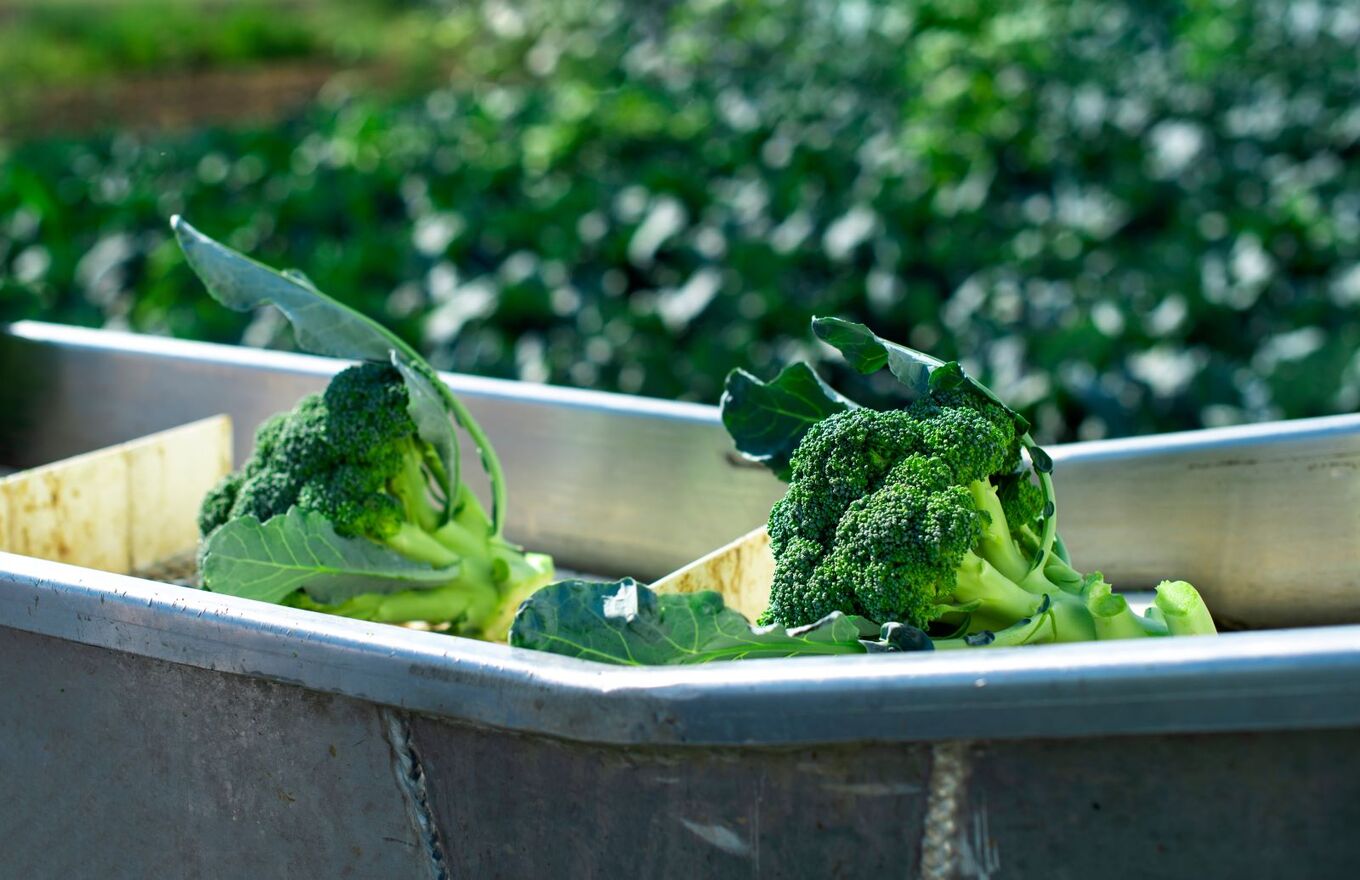 Adobe
Adobe
UPP also separates the protein-rich juice into a clear and a green fraction. The green liquid is clarified protein that can be used for plant-based protein products, and the clear juice is rich in sugars that can be used for applications such as ketchup.
A greener approach to protein production
By utilizing broccoli that would otherwise be discarded, this upcycled protein source has the potential to significantly reduce food waste in the agriculture and food processing sectors. In a world grappling with sustainability challenges, this eco-friendly approach provides a shining example of how resourcefulness and innovation can mitigate waste and reduce our carbon footprint.
Armed with £1.3 million (US$1.6 million) in pre-seed funding and government grants, UPP is working with agri food tech researchers and engineers at the James Hutton Institute and the Agri-EPI Centre to look at properties such as binding and foaming to see if the broccoli extracts could function in other ways such as an egg replacement.
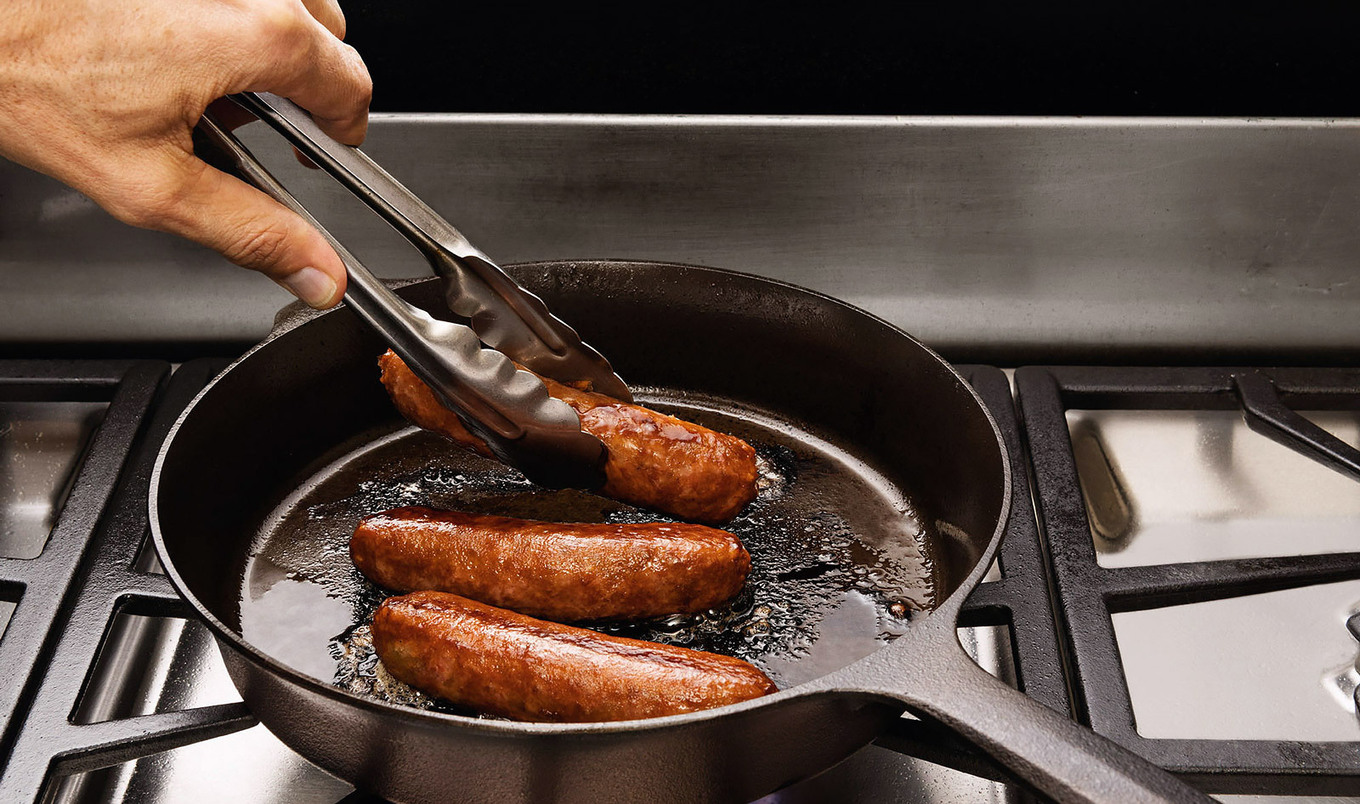 Beyond Meat
Beyond Meat
Several forward-thinking food manufacturers and startups have already expressed keen interest in incorporating this innovative protein into their product lines, ranging from plant-based burgers to protein-enriched snacks. Food companies including Coca-Cola-backed Innocent Drinks are also testing the upcycled broccoli ingredients in everything from smoothies to vegan sausages.
As UPP moves to the next stage of growth, the intent is to rent the harvesters to farmers on a multi-year contract. Part of the deal with those farmers is for UPP to be able to use the wasted broccoli parts for ingredient upcycling and have the modular system directly on those farms.
Nutritional prowess of broccoli
As the world grapples with the environmental impact of traditional animal farming, the pursuit of sustainable protein sources is more crucial than ever. A growing body of evidence links the meat industry to deforestation, water pollution, and significant greenhouse gas emissions.
In this context, alternative protein sources have emerged as a beacon of hope for mitigating these environmental challenges.
Beyond its environmental benefits, broccoli-based protein brings a wealth of nutritional advantages to the table. As a cruciferous vegetable, broccoli is inherently packed with essential nutrients.
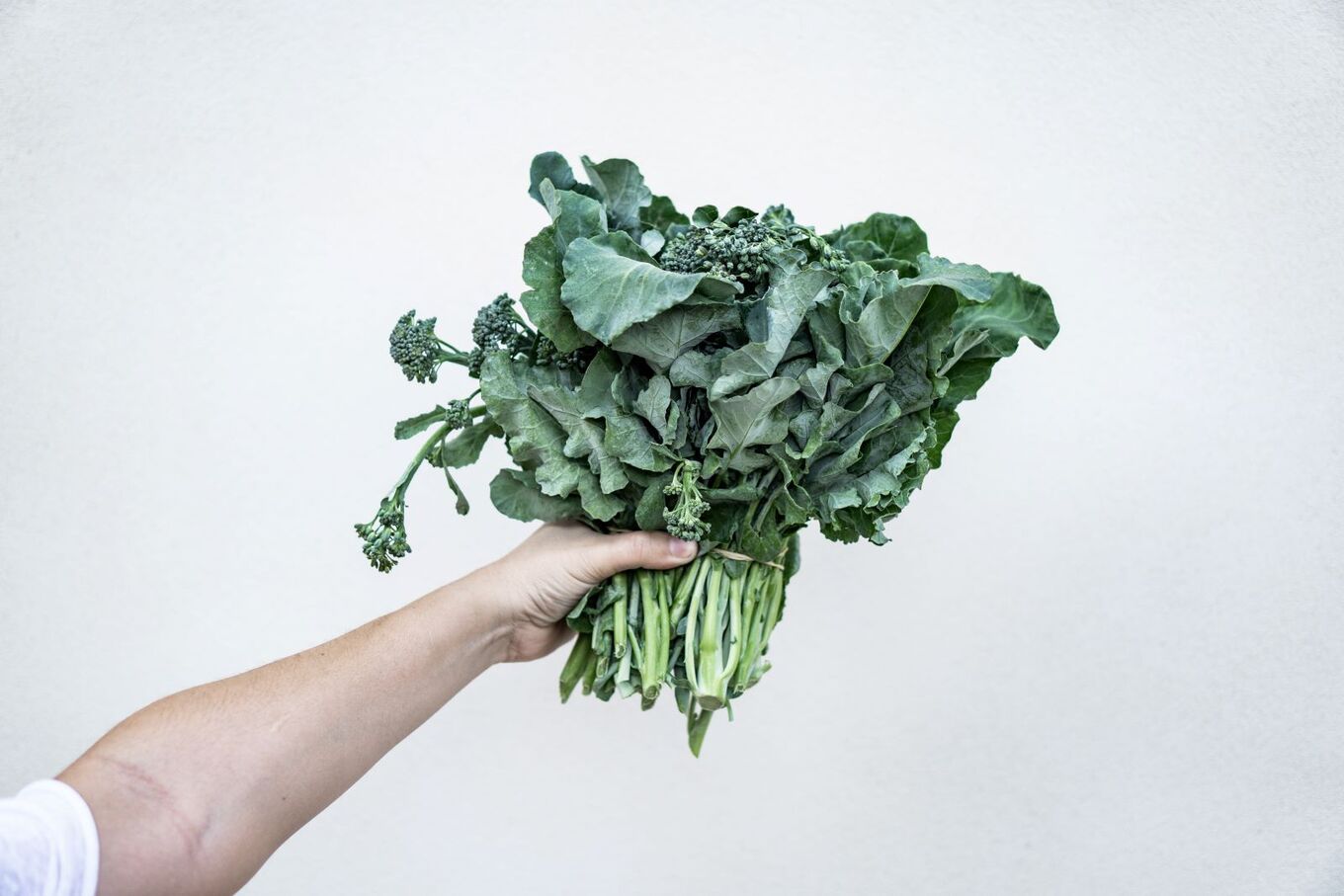 Anna Guerrero/Pexels
Anna Guerrero/Pexels
This protein source offers a balanced amino acid profile, ensuring that consumers can meet their protein needs while also enjoying the myriad health benefits associated with broccoli consumption.
Crucially, this development has the potential to address the protein gap in plant-based diets. For individuals seeking to reduce their reliance on animal-derived proteins, this broccoli-based protein can step in as a versatile and nutritious solution, making it easier for consumers to transition to plant-based diets.
For the latest vegan news, read:
JUMP TO ... Latest News | Recipes | Guides | Health | Subscribe

